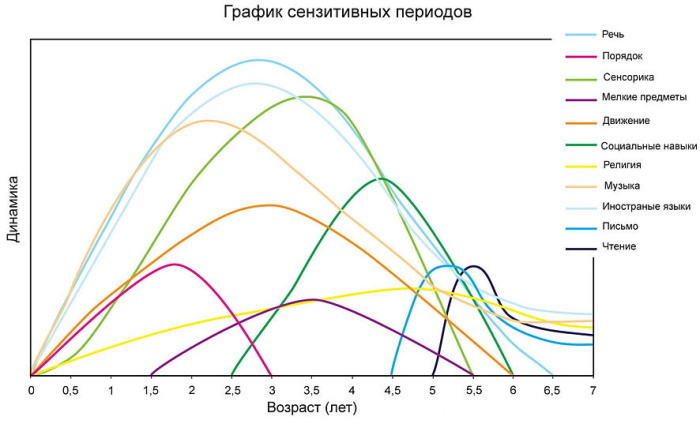Content
- The concept of sensitivity in psychology
- Reasons for the appearance
- Sensitivity as a personality trait and a property of temperament. Signs and examples
- Sensitivity of the emotional sphere
- Sensitivity of the touch sphere
- Types of sensitivity
- Classification of related personality types
- What are sensitive periods?
- Age sensitivity
- Personal relationships are sensitive
- Career and professional activities
- Sensitivity: Treat or Develop?
- Sensitivity training
- Drug therapy
- Videos on Sensitivity in Psychology
Sensitivity or level of sensitivity is important personality trait each person. In psychology, it is customary to distinguish several forms of sensitivity: emotional, psychological, social, and also as a quality of temperament.
The concept of sensitivity in psychology
Sensitivity in psychology is a wide range of mental processes associated with an increased perception of events by a person. Translated from Latin, "sensitivity" means a feeling or sensation, which in psychology has both negative and positive characteristics of attitudes towards various situations.
The most striking examples of sensitivity:
- fear of the new;
- low pain barrier;
- self-criticism and increased self-reflection;
- shyness, fear of criticism and closeness;
- low self-esteem, a feeling of unworthiness and overestimated self-exactingness;
- impressionability and strong feelings of even minor events (positive and negative);
- the ability to build relationships with others;
- building in the past due to bad experience.
Such a sensitive person can be both timid and insecure, as well as a confident leader. It all depends on what kind of sensitivity we are talking about and how a person realizes his strengths and weaknesses.
So, for example, the most striking advantages of controlled sensitivity are the following character traits:
- high moral standards and social responsibility of a person;
- kindness and kindness;
- empathy, that is, a willingness to empathize;
- the ability to catch subtle aspects in interpersonal communication, and in non-verbal expression;
- the ability to build teamwork and quickly resolve conflicts.
 Thus, sensitivity can have positive aspects - if you know how to show them. That is why there are trainings and exercises to increase sensitivity and empathy. But it should also be borne in mind that with age, sensitivity can both decrease and increase, so everything depends largely on the person's self-awareness and self-control.
Thus, sensitivity can have positive aspects - if you know how to show them. That is why there are trainings and exercises to increase sensitivity and empathy. But it should also be borne in mind that with age, sensitivity can both decrease and increase, so everything depends largely on the person's self-awareness and self-control.
Reasons for the appearance
Sensitivity in psychology is a frequent description of human qualities, the causes of which can be several.
The most common of them come from the family and the characteristics of upbringing:
- emotional dryness of parents, the need for affection and care;
- violence in family;
- categorical and strict rules of education;
- excessive discipline.
Genetic predisposed tendencies, such as:
- neuroses, depression;
- heredity;
- brain injury during the perinatal period or at birth;
- mental illness;
- anxiety disorders.
Also, the reason for increased sensitivity can be the social circle, especially during the critical period of growing up, when authority and imitation is an important part of behavior:
- inability to satisfy the desire to be approved (by parents, teacher);
- conflicts among children and rejection by the collective.
All this develops a complex of inferiority and hypersensitive perception of reality, that is, sensitivity.
Sensitivity as a personality trait and a property of temperament. Signs and examples
Sensitivity in psychology is an important characteristic of human perception of the world, as well as a set stable human properties that affect the formation of temperament, speed of reactions and stress resistance.
Therefore, the influence of mild stimuli and a violent reaction to them by a person are examples of high sensitivity. On the other hand, sensitivity is a vivid expression of a melancholic personality, vulnerable and worried for a long time, even over trifles and fictions. The most striking example of a sensitive person is Pierrot from the cartoon about Malvina: he suffers all the time and is overly worried.

On the opposite side, a person who has low sensitivity, that is, good stress resistance and adequate reactions to events, has a good level of resistance - increased emotional sustainability. Such character traits are more characteristic of phlegmatic and sanguine people, that is, calm and balanced people. On the other hand, phlegmatic and sanguine people may seem stubborn, and it would be good for them to develop sensitivity.
Sensitivity in personality psychology is a description of two completely different categories of information perception, such as the sensitivity of emotions and sensory perception. These are concepts that greatly affect the character and professional qualities of each person.
Sensitivity of the emotional sphere
One of the clearest signs of a person's oversensitivity is hypersensitivity, emotional distress, which can often be triggered by minor events, fears, or anxiety.
The sensitivity of the emotional sphere in the psychology of sensitivity is a kind of persistent excessive manifestations of reactions to various situations, which can be of different forms, such as:
- mood swings;
- low self-esteem;
- amorousness;
- anxiety, phobias;
- long-term experience of their own failures;
- self-digging and excessive self-criticism;
- empathy and empathy for the problems of others.
Sensitive people are not only prone to melancholic periods and depressive states, they are also people with a high empathic component, sometimes very excessive. Psychologists believe that any unbalanced strong feelings inherent in sensitive people do not pass. without a trace and over time manifest themselves in the development of phobias, frustrations, nervousness, depression and emotional burnout.
Sensitivity of the touch sphere
If the sensitivity of the emotional sphere in sensitivity denotes the intensity of a person's reaction to events, then the sensitivity the sensory sphere is used to describe 5 ways of perceiving information and their intensity, namely: touch, smell, sight, hearing and taste.
Even without an active cognitive reaction, that is, a person's exaggeration of events, the sensitivity of these 5 sensitive sensors can be considered as a separate type of sensitivity and described by the concept of "threshold sensitivity ".
For example, increased sensitivity, or a low threshold of sensitivity, to sound is commonly seen in musicians and blind people, and there is also an increased sensitivity to odors. due to allergies or pregnancy, sensitivity to light may be a feature of the eyeball, and artists have a well-developed sensitivity to color shades and features forms.
Thus, the sensitivity of the sensory sphere is a great advantage for the development of professional skills or adaptation to external circumstances in comparison with emotional sensitivity, and also - it can develop.
Types of sensitivity
Depending on the direction in psychology, sensitivity is perceived differently: as the ability to perceive information (emotional and sensory sensitivity), as well as a feature of temperament, where social sensitivity, consisting of 4 types:
| Type of sensitivity | Description |
| Observational or classic | This is the ability of a person to observe everything at once, to the smallest detail in the current situation, in the behavior of the interlocutor or in himself (self-observation). Classical sensibility is manifested, for example, during a conversation, when a person is able to observe and evaluate verbal and non-verbal characteristics of your interlocutor (speech, facial expressions, intonation and posture), thereby creating a more complete and satisfactory picture of the person and his condition. |
| Theoretical | This type of sensibility involves the ability of a person to use their knowledge of human nature and behavior in communication with others. Theoretical sensitivity is the ability to build good relationships based on knowledge, explain your own thoughts at the necessary level, resolve conflicts and find explanations for the actions of others of people. |
| Nomothetic | A type of social sensitivity that helps to identify behavioral traits inherent in a certain group or age. Based on the knowledge gained, a person is more productive in establishing contacts, building relationships with people, or predicting their behavior in a given situation. |
| Ideographic | Unlike nomothetic, ideographic sensitivity is the ability to understand the individual traits of any person. On the basis of communication, their own idea of the psychological portrait of the interlocutor, his character traits and preferences is formed. Based on such assumptions, a subsequent communication strategy is usually successfully built. |
Thus, while balanced emotional sensitivity helps to cope with one's own experiences, it is these 4 types of social sensitivity that are the key to success in professional growth. An important property of social sensitivity is overcoming the feeling of fear of society, communicating with other people, overcoming the inferiority complex inherent in many people.
In psychology, it is believed that it is with the awareness of their inferiority that social sensitivity begins to develop - this is willingness to overcome the fear of publicity, the desire to resolve conflict situations or find a way to improve relationships with new acquaintances.
Classification of related personality types
In addition to emotional and social sensitivity, psychologists distinguish related types of behavior, which refers to the personality characteristics of temperament.
The sensitivity of temperament substantiates the personality traits of a person, outside the spectrum of his emotional response to events and behavior in the social environment. Sensitivity of temperament describes certain character traits, which in psychology are better known as melancholic, as well as depressive states of varying complexity. On the other hand, such hypersensitivity is not typical of other types of temperament, that is, choleric, phlegmatic and sanguine people.
The most common qualities of temperament, which are described in the characteristics of sensitivity, are the following human traits:
- strong impressionability;
- vulnerability;
- anxiety;
- suspiciousness;
- resentment;
- self-criticism;
- inferiority complex.
What are sensitive periods?
Sensitivity as a concept in psychology is also characterized by age characteristics. The idea of sensitivity in developmental psychology describes the peak and important moments in the development of a person's mental functions in a given period. The most clearly sensitive periods are presented in childhood and adolescence.
Child psychologists argue that the child's psyche is more sensitive to the perception of the external world, has less resistance and because of this - not only more impressionable, but also more capable of learning the basic skills of life in society. The development of the child itself is progressive and uneven, therefore, there are not always sensitive periods, but they critically affect the formation of a particular function and skill of a person.
So, for example, the sensitive period for the formation of speech is the age from 0 to 6 years, when the child is actively learning speech skills. During this time, he unconsciously adopts the speech habits of his environment - vocabulary, grammar and dialectisms, begins to master written language.
From 6 to 10 years of age, sensitivity manifests itself in the learning process and in the development of discipline. This period is critical for the formation of a type of thinking and the development of basic cognitive functions - writing, reading, abstract concepts, mathematics and reflection.
From the age of 10, adolescence begins, the sensitivity of which is aimed at developing self-knowledge and self-esteem, separating oneself from collective perception. The critical skills during this period are the development of communication, the formation of their own worldview and value system.
Age sensitivity
The importance of developing a particular personal skill in the sensitive period is justified by the most acceptable biological and social need. In case of unsatisfactory formation of skills in the sensitive period (communication, discipline, speech or writing), it will be possible to develop them at a later age, but more difficult.
Also, the unsatisfactory development of mental skills in a particular sensitive period can contribute to the development of mental problems: if the child does not speak on time, he may have problems communicating with other children, which will develop into a feeling of inferiority.
Age sensitivity and its timely use are considered by psychologists to be the key to the harmonious development of a child, his behavior, psyche, skills and talents. In more detail, age sensitivity in the learning process was developed by the Italian teacher and teacher Maria Montessori, which identified 7 critical periods of age-related development of children:
- speech development (up to 6 years old);
- development of perception to order (up to 3 years);
- sensory perception (up to 5 years old);
- development of motor skills and plastics (from 1 to 4 years);
- recognition and study of small subjects (from 1 to 7 years);
- phonemic sensitivity (4 to 5 years old);
- sensitive period of development of writing skills (from 6 to 8 years).
 Thus, age sensitivity is an important factor that should be considered during the period of childhood maturation and socialization.
Thus, age sensitivity is an important factor that should be considered during the period of childhood maturation and socialization.
Personal relationships are sensitive
Sensitivity is also an important factor in compatibility in a couple: people with different levels of perception and emotional experience can rarely get along and take into account each other's boundaries.
It often happens that a person with increased emotional sensitivity will close in himself even more and his anxiety will increase due to the fear of breaking up the relationship. On the other hand, if a person has low social sensitivity, he will be afraid to violate the boundaries of his partner and thereby embarrass both of them in an innuendo.
Thus, taking into account the sensitivity at the everyday and emotional level of the couple is an important aspect of building harmonious relationships.
Career and professional activities
The sensitivity factor can also be used for proper career development. On the one hand, understanding your own emotional sensitivity allows you to improve stress resistance, not to succumb to excessive self-criticism and the influence of negative thinking.
On the other hand, the development of social sensitivity is a key skill of modern professional activities that ensure successful communication with others, the ability to build relationships and find a common language with colleagues.
Sensitivity: Treat or Develop?
Sensitivity in psychology is an ambiguous concept, it can be both a useful quality of a person's character and a negative property of the psyche. On the one hand, sensitivity helps to develop important skills and personality traits, and on the other sides - it can contribute to mental disorders (neuroses, depression and panic attacks).
Despite its ambiguity, sensitivity is part of a fulfilling human life. Therefore, if you treat him positively, and be able to balance the level of sensitivity, this will become an important aspect of life experience. That is why today there are many different courses and trainings that help develop perception skills, improve the skills of empathy, communication, observation and the formation of adequate self-criticism are important aspects of professional activities.
Therefore, if you take your own sensitivity responsibly and analyze in time what tendencies are more inherent in a person, positive or destructive, - this will be an important factor for improvement life.
Sensitivity training
Thus, simple CBT exercises can help maintain sensitivities within a reasonable range. Moreover, these exercises help to maintain awareness in difficult situations and in case of any psychoemotional deviations, and not slide into emotional burnout or depression.
The most popular group sensitivity training exercises are as follows:
| An exercise | Description |
| Development of observation | One group member must recognize the maximum number of changes between two situations: first he remembers how all the group members sit, goes out the door. During this time, participants change positions and positions. Upon returning to the room, he should understand within 1-2 minutes what has changed. |
| Enhancing emotional awareness | The training participants are given cards with inscriptions of one emotion or another. The purpose of the assignment is not to verbally show the feeling, emotion, or state from the card. |
| Development of observational sensitivity | The purpose of the exercise is to feel and understand the emotional state of the neighbor. Group members sit in a circle, choosing a partner. One member of the pair should try to show some kind of emotion (facial expressions and non-verbal expressions), and the other should guess it. |
Thus, sensitivity training can help improve the attention, memory and perception of each person. On the other hand, there are also trainings to help reduce over-emotional sensitivity, which also interferes with being productive and building relationships.
Drug therapy
Sensitivity is a natural property of every person, with varying degrees of intensity. Psychology also provides different ways of working out individual sensitivity - from decreasing it to increasing it. At the same time, there is also an extreme form of therapy - medication.
This is a specialized care that is used only in the case of a severe emotional and psychological disorder of the nervous system. Usually, treatment is aimed at restoring hormonal levels and is carried out under the supervision of a specialist.
Videos on Sensitivity in Psychology
Sensitivity:



